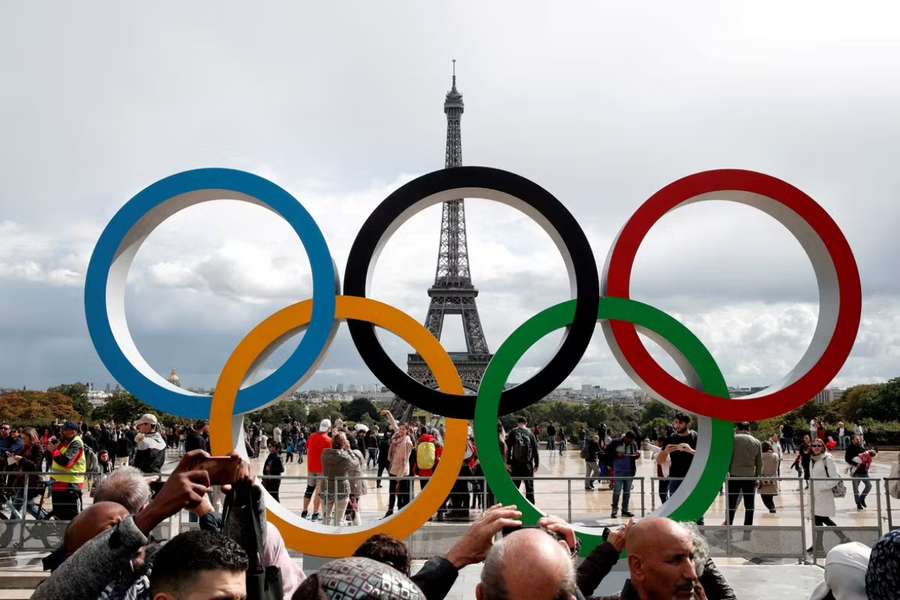IOC's Lalovic: Russians' Asian route to Olympic Games not yet final

Lalovic, also a member of the powerful International Olympic Committee (IOC) executive board, said all options were being considered to see if and how those athletes could take part in the Paris Games despite Russia's invasion of Ukraine.
Ukraine has threatened to boycott the Olympics should athletes from Russia and Belarus be allowed to compete. Latvia has hinted it could also boycott.
The IOC announced last week that athletes from the two countries, unable to compete in European qualifiers due to the war, might be allowed to earn slots for the Paris Games through Asian qualifying.
Should they qualify, they would compete in Paris as neutral athletes, with no flags or anthems, part of IOC sanctions against them.
"From a position as international federation (IF) president I can say all IFs agreed to follow the recommendations of the IOC and that the IOC should be the leader going towards the Games," Lalovic told Reuters in an interview, referring to international sports federations.
"At this moment we are exploring all the options ... We should think about the human rights of those who are not involved in the war especially the athletes."
Several nations apart from Ukraine have openly opposed the IOC's plans to bring these athletes to the Games.
Poland said on Thursday it believed it would be possible to build a coalition of some 40 countries, including the United States, Great Britain and Canada, by February 10 supporting the call to block Russian and Belarusian athletes from the Games.
'DIFFERENT POSSIBILITIES'
Lalovic said the IOC's decision for their inclusion was based on a United Nations (UN) resolution in December against discrimination within with the Olympic movement.
Concerns had also been raised by two UN special rapporteurs of the United Nations Human Rights Council over the exclusion of Russian and Belarusian athletes from international competitions.
"We cannot ban athletes just because of their passports," Lalovic said.
"We are in a position to explore the different possibilities for eventual inclusion of Russian and Belarusian athletes."
The plan to get them to qualify through Asia, however, would need to be carefully devised, Lalovic said, as some Asian countries could see Russian and Belarus athletes as threatening their own Olympic spots.
"It is a complicated process but we don't say it is impossible. This is considered as an option to overcome the actual situation."
For some sports like wrestling it would be easier to plan the process, with continental qualifiers only set in 2024.
"For us it is easier because we don't have to do anything immediately like some other sports which have already started qualification," Lalovic said.
For most of the 32 sports, qualification is already under way or will start this year with hundreds of separate national, regional and continental events over the next 18 months.
Asked whether, one way or another, Russian and Belarusian athletes would be in Paris, Lalovic said: "Some are threatening to boycott the Games. We heard that from Ukraine. I also saw what Latvia said."
"I cannot answer this question because we have to see what results this exploration of the whole situation will bring."

